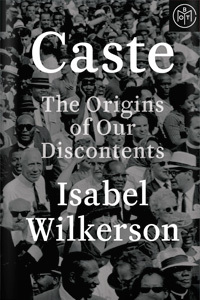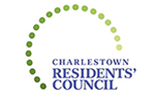Last Updated on January 28, 2021

Resident Ken Weeden’s review of Caste: The Origins of Our Discontent by Isabel Wilkerson [New York: Random House, 2020] is scheduled to be shown on Tuesday, February 16, 2021 on TV 972 directly after Charlestown Today which runs at 10 AM, Noon, 4 PM, 8 PM, and 10 PM.
In late 1959, Martin Luther King Jr. and his wife visited India, land of Mohandas Gandhi, the father of nonviolent protests. One day, they visited a high school for student whose parents had been members of the “untouchables, ” the lowest caste in the ancient Indian caste system. The principal introduced Dr. King, as an American untouchable. King was taken back, even hurt by such a word. It was only later, that he came to see that he and all Black Americans really are untouchables; assigned for hundreds of years to the lowest rung in an American caste system
In her latest book, Caste: The Origins of Our Discontent, Isabel Wilkerson broadens our understanding of racism by examining it as one part of caste system founded over 400 years ago placing white Protestant male property owners at the top and black Americans, first slaves and then second class citizens, the untouchables. As others emigrated to America, they filled in between the two. Catholics, Jews, Southern, Eastern Europeans, Asians and others jockeyed for position by changing their names, intermarrying with whites to move higher up the caste system. With time they accepted their position, perhaps envying those above them and importantly looking down on those below them. This allowed and encouraged virtually everyone else to feel and act superior to black Americans who were always last for jobs, education, housing, social dignity and respect. Laws played a major role in maintaining this system, but it was the unwritten, almost the silent rules and traditions of the caste system that kept order from one generation to the next.
Wilkerson examines the caste system of India, Nazi Germany and the United States and articulated 8 pillars, beliefs that uphold the caste system. It matters not if they are true, as long as people accept them as true thus providing order and justification for their lives. These 8 include: divine will and laws of nature, class inheritability, control of who can marry who, purity of the race, or religion, occupational expectations, dehumanization and stigma of the lower groups, control through cruelty and terror and finally the social agreement of the superiority of some and the inferiority of the many.
She then turns to examining the tentacles of the caste system and how it operates in the daily lives of Americans rewarding those that comply and punishing those who do not. She explores the Obama and Trump administrations even COVID-19. She ends by asking if a society can be free of castes. Can we?
